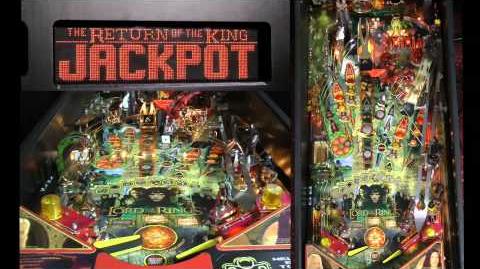When, a player, loses or dies in a game, games frequently kick the player out of play. This mechanic can allow the player a moment to reset and get ready to try again. The most effective games at maintaining player involvement make that moment as painless as possible, with examples of games that immediately load the player to their last checkpoint or games that allow the player the instant choice to retry. This design decision allows the player the opportunity to maintain flow, even in difficult to master games, without overly punishing the player by forcing him or her to go back to the opening menu and navigate back to the game in order to retry. Such a process would frequently demoralize a player, and increase the likelihood that the player would “rage quit” as that in-game experience has been fully broken when ejected from the game.
Example 1: Nuclear Throne[]
“Nuclear Throne” is a punishing bullet hell, where the player can die easily in the first 20 seconds of gameplay. However, the game compensates for that difficulty of play by allowing the player to hit retry instantly, and be back in the game again working their way through the hail of enemy bullets.
Example: Pinball[]
Arcade-style pinball is a great example of a highly approachable game that allows the player to retain the joy and fun gained from playing the game, even when they lose. It achieves this by ensuring that the same gameplay is immediately accessible even to first-time players. As a result, the player is not dispirited from trying again by the thought that they lost anything aside from their score. Though pinball does not implement checkpoints (unless the player is able to earn bonus balls), the coin-operated, pull-and-release interface of the game is just as inviting after a loss as it was before one - perhaps even more so as the player may desire to beat their highest score.
Super Meat Boy[]
In Super Meat Boy, the player's objective is to rescue bandaid girl by overcoming challenging puzzles of timing, positioning, and precision platforming. You die OFTEN in this game because of how challenging the levels are, but the developers celebrate this with blood splatter permanence between restarts, with ghost playbacks to watch past versions of yourself die along the way, and most important. They also make these restarts quite quick, because as the player you KNOW you can beat it, and that if you just had ONE more try you could do it. They appease this burning desire with the quick restarts. Watch the video above to see this pacing.
Super Hexagon[]
Super Hexagon is a game where you control a small triangle which circles around a central hexagon while avoiding collisions with the walls approaching the centre. The game starts off with a sharp difficulty curve with players failing to survive more than 10 seconds. Subsequent attempts will see increasing success as the game get easier to master with time. In such a game, where the player fails quite frequently it is imperative to have the game restart as quickly as possible.
EXAMPLE 05: TETRIS
Tetris is a game with short cycles, simple rules and a clear objective. In addition, it is really easy to restart and play over and over. "It was almost there", "I can do better, it won't take a long to play one more match", or the famous "only one more time" are phrases tied to those kind of games that have short game loops and that are easy to replay. Give the options of "replay" or "go to the next level", or "add a coin to keep playing" right when a level is finished incentives the player to keep playing, helps engagement and avoids breaking immersion.




